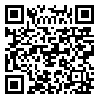Volume 13, Issue 5 (September-October 2014)
Payesh 2014, 13(5): 589-599 |
Back to browse issues page
Download citation:
BibTeX | RIS | EndNote | Medlars | ProCite | Reference Manager | RefWorks
Send citation to:



BibTeX | RIS | EndNote | Medlars | ProCite | Reference Manager | RefWorks
Send citation to:
Ali Montazeri, Mahmoud Tavousi, Fateme Rakhshani, Seyed Ali Azin, Katayoun Jahangiri, Mahdi Ebadi, et al . Health Literacy for Iranian Adults (HELIA): development and psychometric properties. Payesh 2014; 13 (5) :589-599
URL: http://payeshjournal.ir/article-1-279-en.html
URL: http://payeshjournal.ir/article-1-279-en.html
Ali Montazeri *1 
 , Mahmoud Tavousi2
, Mahmoud Tavousi2 
 , Fateme Rakhshani3
, Fateme Rakhshani3 
 , Seyed Ali Azin2
, Seyed Ali Azin2 
 , Katayoun Jahangiri4
, Katayoun Jahangiri4 
 , Mahdi Ebadi2
, Mahdi Ebadi2 
 , Shohreh Naderimagham5
, Shohreh Naderimagham5 
 , Atoosa Solimanian6
, Atoosa Solimanian6 
 , Fateme Sarbandi6
, Fateme Sarbandi6 
 , Amir Motamedi2
, Amir Motamedi2 
 , Mohammad Mahdi Naghibi Sistani7
, Mohammad Mahdi Naghibi Sistani7 


 , Mahmoud Tavousi2
, Mahmoud Tavousi2 
 , Fateme Rakhshani3
, Fateme Rakhshani3 
 , Seyed Ali Azin2
, Seyed Ali Azin2 
 , Katayoun Jahangiri4
, Katayoun Jahangiri4 
 , Mahdi Ebadi2
, Mahdi Ebadi2 
 , Shohreh Naderimagham5
, Shohreh Naderimagham5 
 , Atoosa Solimanian6
, Atoosa Solimanian6 
 , Fateme Sarbandi6
, Fateme Sarbandi6 
 , Amir Motamedi2
, Amir Motamedi2 
 , Mohammad Mahdi Naghibi Sistani7
, Mohammad Mahdi Naghibi Sistani7 

1- Mental Health Research Group, Health Metrics Research Centre, Iranian Institute for Health Sciences Research, ACECR, Tehran, Iran
2- Health Education and Promotion Research Group, Health Metrics Research Centre, Iranian Institute for Health Sciences Research, ACECR, Tehran, Iran
3- Research Center of Injury Prevetion and Security Promotion, Shahid Beheshti University of Medical Sciences, Tehran, Iran
4- Family Health Group, Health Metrics Research Centre, Iranian Institute for Health Sciences Research, ACECR, Tehran, Iran
5- Non-communicable Diseases Research Center, Endocrinology & Metabolism Population Sciences Institute, Tehran University of Medical Sciences, Tehran, Iran
6- Health Education Office, Health Departments, Ministry of Health and Medical Education, Tehran, Iran
7- Department of Community Oral Health, School of Dentistry, Babol University of Medical Sciences, Iran
2- Health Education and Promotion Research Group, Health Metrics Research Centre, Iranian Institute for Health Sciences Research, ACECR, Tehran, Iran
3- Research Center of Injury Prevetion and Security Promotion, Shahid Beheshti University of Medical Sciences, Tehran, Iran
4- Family Health Group, Health Metrics Research Centre, Iranian Institute for Health Sciences Research, ACECR, Tehran, Iran
5- Non-communicable Diseases Research Center, Endocrinology & Metabolism Population Sciences Institute, Tehran University of Medical Sciences, Tehran, Iran
6- Health Education Office, Health Departments, Ministry of Health and Medical Education, Tehran, Iran
7- Department of Community Oral Health, School of Dentistry, Babol University of Medical Sciences, Iran
Abstract: (18199 Views)
Objective (s): Health literacy has been defined as ‘the degree to which individuals have the capacity to obtain, process and understand basic health information and services needed to make basic health decisions’. This study aimed to develop and psychometrically evaluate a measure for health literacy in Iranian adults.
Methods: A review of literature on all measures of health literacy was conducted in order to generate an item pool. Then, based on a definition of health literacy and the most important public health issues in Iran, a framework was identified in order to develop the initial questionnaire. The initial questionnaire contained 66 items. Accordingly 15 specialists from different disciplines were approached to carry out content validity. Consequently 19 items were removed and a provisional version of the questionnaire with 47 items was provided. Finally, a random sample of adults living in Tehran completed the questionnaire. Psychometric properties of the instrument were assessed performing exploratory factor analysis and internal consistency.
Results: In all 336 adults aged 18 to 65 years old completed the questionnaire. When performed the exploratory factor analysis, 33 items were loaded indicating a 5-factor solution for the questionnaire namely: access (6 items), reading (4 items), understanding (7 items), appraisal (4 items), and decision (12 items) that jointly explained %53.2 of variance observed. Additional analysis for internal consistency showed satisfactory results with Cronbach’s alpha coefficients ranging from 0.72 to 0.89.
Conclusion: The findings suggest that the Health Literacy for Iranian Adults (HELIA) is a reliable and valid instrument for measuring health literacy in Iran.
Methods: A review of literature on all measures of health literacy was conducted in order to generate an item pool. Then, based on a definition of health literacy and the most important public health issues in Iran, a framework was identified in order to develop the initial questionnaire. The initial questionnaire contained 66 items. Accordingly 15 specialists from different disciplines were approached to carry out content validity. Consequently 19 items were removed and a provisional version of the questionnaire with 47 items was provided. Finally, a random sample of adults living in Tehran completed the questionnaire. Psychometric properties of the instrument were assessed performing exploratory factor analysis and internal consistency.
Results: In all 336 adults aged 18 to 65 years old completed the questionnaire. When performed the exploratory factor analysis, 33 items were loaded indicating a 5-factor solution for the questionnaire namely: access (6 items), reading (4 items), understanding (7 items), appraisal (4 items), and decision (12 items) that jointly explained %53.2 of variance observed. Additional analysis for internal consistency showed satisfactory results with Cronbach’s alpha coefficients ranging from 0.72 to 0.89.
Conclusion: The findings suggest that the Health Literacy for Iranian Adults (HELIA) is a reliable and valid instrument for measuring health literacy in Iran.
type of study: Descriptive |
Accepted: 2014/08/30 | ePublished ahead of print: 2014/09/13 | Published: 2014/09/15
Accepted: 2014/08/30 | ePublished ahead of print: 2014/09/13 | Published: 2014/09/15
| Rights and Permissions | |
 |
This work is licensed under a Creative Commons Attribution-NonCommercial 4.0 International License. |



